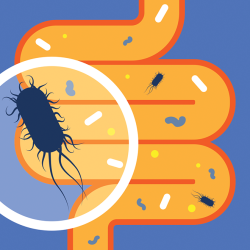
Combined with eating less, fasting reduces frailty in old age and extends the lifespan of mice. Danielle Lawry
Scientists know that long-term calorie restriction causes lower weight, better blood sugar control, and longer lifespans in animals.
But now, UW–Madison researchers have found that reduced calorie intake alone is not enough; fasting is essential to derive full benefit. Combined with eating less, fasting reduces frailty in old age and extends the lifespan of mice.
Surprisingly, mice that ate fewer calories but never fasted died younger than mice that ate as much as they wanted, suggesting that calorie restriction alone may be harmful.
The study was led by UW School of Medicine and Public Health metabolism researcher Dudley Lamming and graduate student Heidi Pak PhDx’23. Previous studies had unintentionally combined calorie restrictions with long fasts by providing animals with food just once a day. Lamming’s group designed a study to tease apart these two factors.
It turned out that many of the benefits originally ascribed to calorie restriction alone — better blood sugar control, healthier use of fat for energy, protection from frailty in old age, and longer lifespans — all required fasting as well.
And when it came to improving insulin sensitivity and liver metabolism, fasting on its own — even without reducing the amount of food eaten — was just as powerful as calorie restriction with fasting.
Published in the Spring 2022 issue



Comments
Mark Labus March 10, 2022
I thought this was very interesting research. I have tried “Intermittent fasting” with poor results. What I’d like to know is, what is the duration of each fast, and how often do these fast periods occur to be successful?
Thanks
Mark